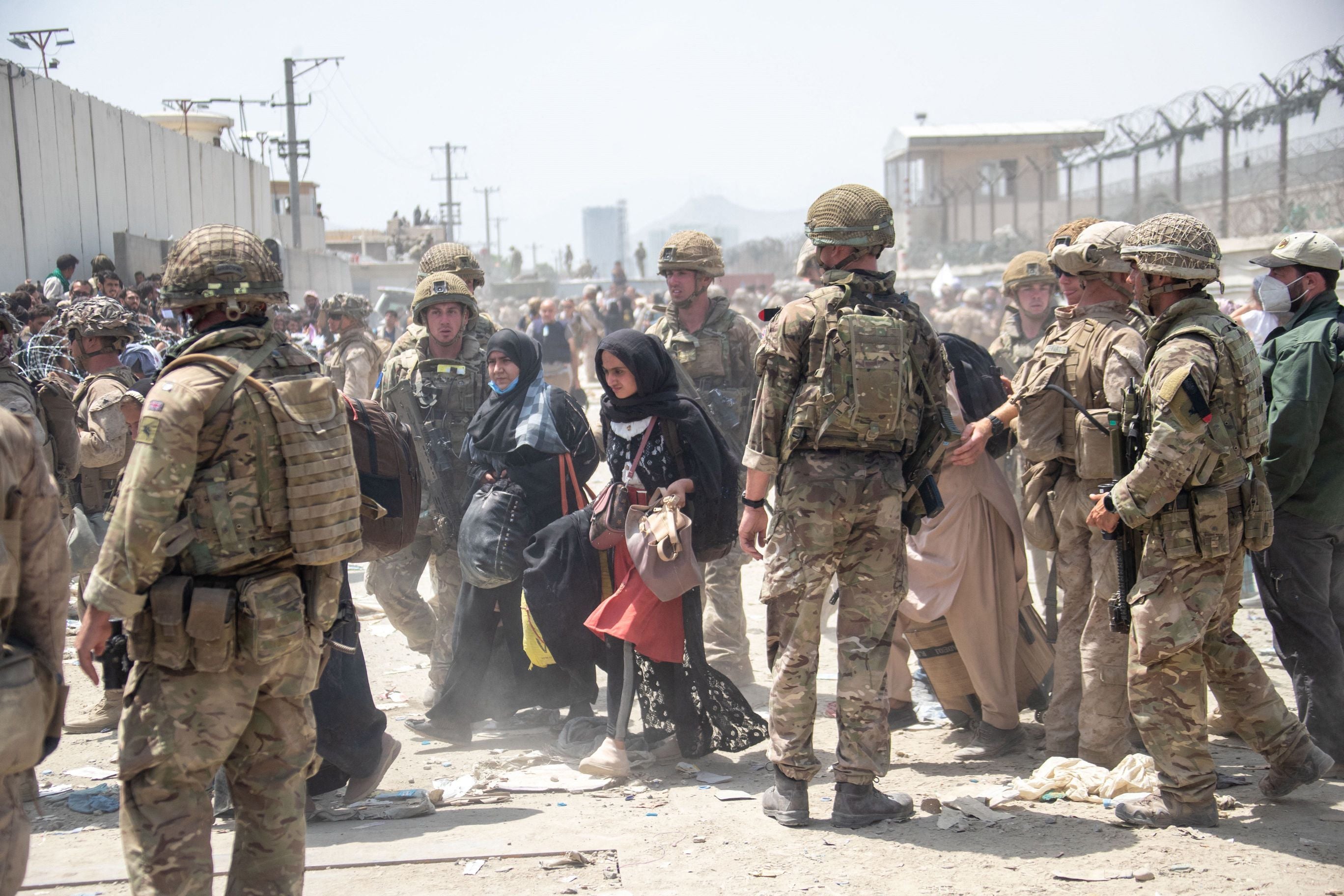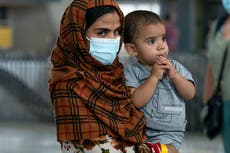Afghanistan: Taliban trying to look like good citizens ‘until last international troop leaves’, experts warn
Only ‘time will tell’ whether Taliban’s claims that it will uphold human rights are true
The Taliban may only claim to uphold pledges on human rights and recriminations against opponents “until the last international troop is gone” from Afghanistan, it has been warned.
As G7 leaders met to discuss the situation, including calls to extend the 31 August withdrawal deadline, experts said Western nations could not depend on the group’s behaviour so far as an indication of its future actions.
Following the Taliban’s takeover of Kabul, a spokesperson sought to reassure Afghan civilians and the international community about its support for the rights of women and girls, media freedom, and protections for former government personnel.
But Zabihullah Mujahid’s claim that the Taliban was “not going to seek revenge on anybody” has already been undermined by reports of killings, torture, kidnapping and intimidation.
At a press briefing on Tuesday morning, experts from the Chatham House think-tank said it was too early to know whether the group had reformed any of its oppressive positions.
Leslie Vinjamuri, director of its US programme, said that president Joe Biden had to make “very difficult calculation” about the costs of making or breaking the evacuation deadline.
“The calculation he will be making is what does the Taliban do if the US doesn’t get out by the 31st, how many lives will be shed and whose,” she added.
“The Taliban want to look like good citizens - until the last international troop is gone.”
Hameed Hakimi, a Chatham House research associate and former advisor to the Afghan Ministry of Foreign Affairs, said the Taliban was trying to bring former opponents including ex-ministers and warlords “into the fold of the new administration”.
He pointed to “symbolic gestures”, including a U-turn on attempts to completely remove the Afghan national flag following protests, and the inclusion of women at some official meetings.
“They are doing small little gestures trying to show they are different, time will tell whether they are,” Mr Hakimi added.
“The Taliban only has one superior goal and that is to protect themselves.”

As well as questions around the Taliban’s plans for governing Afghanistan, its relations with Isis and al-Qaeda are also uncertain.
In the 2020 deal that ensured the withdrawal of US troops, the Taliban pledged to ensure terrorist groups were not able to use Afghan territory to train and plot foreign attacks.
But there are concerns that the agreement may not be honoured, or that the Taliban may lose control of parts of the country and allow “ungoverned spaces” that are a key concern for British intelligence services.
The stance the “Islamic Emirate of Afghanistan” will take towards al-Qaeda is unclear, following a long-running association and links between senior figures.
Isis, which has a smaller presence in Afghanistan, has fought the Taliban and officially declares the group an “apostate militia”, although the two groups have also collaborated in the past.
Isis’ local faction has not claimed an attack on the Taliban since the day before the group took Kabul.
Claims of attacks - mainly shootings - targeting Taliban fighters were previously sent out over Isis’ official propaganda regularly, with six recorded by The Independent in the month to 14 August.
Mr Hakimi said it was likely that Isis was “keeping a low profile” as the Taliban exerts its control, and that other terrorist groups were doing the same for the time being.

There are concerns that the Taliban’s success could inspire Islamist groups to become more active in surrounding countries, as well as action by individual jihadists further afield.
Patricia Lewis, who leads the International Security programme at Chatham House, said the response to the rapidly-changing situation was hampered by a “pattern of major failures of intelligence”.
“There is clearly a major disconnect between daily intelligence and a long term strategic understanding of what has been going on in Afghanistan,” she told the press conference.
“It’s not that there weren’t people predicting what was happening, but their analysis stayed low down on the pecking order. We need to do a lot of work to fix those problems.”
Dr Lewis said a situation where G7 nations were having a request a withdrawal extension from the Taliban should not have arisen, adding: “The deadline was always looming so why has it got to this point? Why was intelligence about the Taliban not factored into planning? “Why do we not prepare for the worst-case scenario properly is the question we need to have answered.”
The Ministry of Defence said the UK has evacuated more than 8,400 people from Afghanistan as part of the rescue mission that began less than two weeks ago.
Embassy staff, British nationals, those eligible under the Afghan Relocations and Assistance Policy (Arap) programme and a number of nationals from partner nations were included in the figure.
Officials said the evacuation process will run as long as the security situation allows, in coordination with the US, but the defence secretary conceded that Mr Biden is “unlikely” to delay the departure of US troops from Afghanistan to allow more people to be evacuated.
Ben Wallace admitted that “we're not going to get everybody out of the country” and said any movement after 31 August was “unlikely”.
The prime minister spoke to Mr Biden on Monday evening ahead of the G7 leaders’ call and vowed “to use every humanitarian and diplomatic lever” to protect human rights in Afghanistan.
“The Taliban will be judged by their deeds and not their words,” Boris Johnson added.
Join our commenting forum
Join thought-provoking conversations, follow other Independent readers and see their replies
Comments


Bookmark popover
Removed from bookmarks